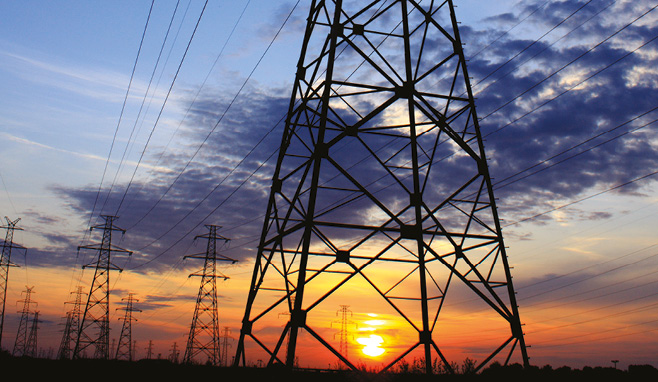Brexit and the potential implications for SEM


Sorting out a bespoke electricity agreement will be a fundamental Brexit requirement for Ireland.
 Chatham House Senior Research Fellow Antony Froggatt believes there are a number of key reasons why both the UK and the EU27 should treat energy, and in particular electricity, as a special case.
Chatham House Senior Research Fellow Antony Froggatt believes there are a number of key reasons why both the UK and the EU27 should treat energy, and in particular electricity, as a special case.
“The provision of energy is a vital public service,” he says.
“Maintaining reliable and affordable energy supplies is essential for the normal functioning of the economy, even if responsibility for energy generation and distribution primarily rests with the private sector.
“If energy prices are high or if energy supply is disrupted, there is an immediate impact on the whole of society.
“In addition, electricity is difficult and expensive to store, to a greater extent than oil and gas. Consequently, ensuring real-time availability and system stability requires a clear regulatory framework and government oversight.”
Specifically, where Ireland is concerned, he says that the UK and the EU27 have identified the special relations between the UK and the Republic of Ireland as a priority for negotiations. This would include the continuation of the Single Electricity Market (SEM), which was established in 2007. Froggatt adds: “Any future agreement needs to maintain the SEM across the island of Ireland, as failure to do so could result in an expensive duplication of infrastructure and governance.
“The UK’s and EU’s energy and climate change policies have evolved together and are strategically aligned. The EU’s internal energy market and subsequent packages of energy legislation were created with the aim of facilitating market access, transparency and regulation, consumer protection, support interconnection between member states while ensuring adequate levels of supply across Europe.
“These instruments have also become central to the EU’s internal and external relations. For example, membership of the Internal Energy Market (IEM) has been important for relations between the UK and the Republic of Ireland, as Northern Ireland and the Republic run a single joint electricity market.”
Froggatt confirms that the SEM was established in 2007 to increase energy efficiency and competition throughout both Northern Ireland and the Republic of Ireland. The system operates as an integrated entity, largely on the basis of bespoke market rules contained in the Trading and Settlement Code. While SEM has been designed in line with the EU’s Third Energy Package, it is based on a bilateral co-operation agreement between the Dublin and Westminster governments rather than on EU legislation. Therefore, it is only likely to be affected by Brexit in the medium-to long-term. SEM is regulated by the Irish Commission for Energy Regulation (CER), the Irish national regulatory authority, and is subject to the EU energy sector regime. Therefore, if SEM is maintained post-Brexit, a part of the UK would continue to be subject to EU law.
Froggatt also points out that, as long as the UK’s legal and regulatory framework remains consistent with the provisions of the Third Energy Package, there will be little or no critical friction between the energy laws applying in Northern Ireland and those in the Republic of Ireland.
He suggests that the the Brexit negotiations require a carefully managed energy solution that specifically addresses the SEM issue. Otherwise, there is a risk that a decade of energy integration on the island of Ireland could be reversed.
Froggatt relates a number of possible post-Brexit arrangements and solutions to this issue.
The first option is to designate Northern Ireland as a special zone, so that the all-Irish market will continue to be subject to EU law. Under this arrangement, were UK policy to diverge from that of the EU, there would be tensions between the EU law and relevant UK policy.
These tensions could raise important questions. If the UK accepts the continued application of EU law in Northern Ireland in relation to the energy sector, it will also need to accept a scenario of regulatory divergence and diversity within the UK. In other words, one part of the country would be subject to EU legislation while the rest would not. Such a scenario would be likely to pose a constitutional challenge: if EU directives and regulations continued to apply to Northern Ireland, how would directives be transposed into domestic law?
The second option would be to create a special status for SEM which, while compliant with EU law, would not subject Northern Ireland to the jurisdiction of the European institutions. However, some of the issues with the first option, in particular in relation to the transposition of EU law so that it applied to Northern Ireland, would also apply to this ‘EU-compatible’ solution. In addition, a jurisdictional forum would be required to address implementation of and compliance with the same legislation in Northern Ireland.
The third option would be to unwind SEM. According to Froggatt, this is unlikely to be politically palatable either in the Republic of Ireland or Northern Ireland. Security of supply is also likely to feature high on the agenda in negotiations. The security of gas supply to the Republic of Ireland is heavily dependent on the UK, and specifically on GB imports through the Moffat interconnector.
The development of the Corrib gas field is likely to improve the Republic of Ireland’s overall gas security. Production began in December 2015, and in 2016/17 is expected to meet around 55 per cent of Gas Networks Ireland’s system demand. The Republic of Ireland will remain reliant on GB gas imports. It is therefore possible that in the future, the Republic of Ireland may seek to develop a dedicated LNG terminal with regasification facility.
Turning to the wider relationship between the UK and the EU-27, Froggatt says that energy cooperation over the past decades has helped European countries to enhance their geopolitical security, respond to growing climate threats, and create a competitive pan-European energy market.
“Maintaining close cooperation in this field, and the UK’s integration in the European internal energy market will be important for the UK and the EU27 post-Brexit,” he explains.
“Strong UK–EU27 energy cooperation could help ensure that existing and future interconnectors physical pipes and cables that transfer energy across borders between the UK, Ireland and the continent are used as efficiently as possible.
“As European economies, including the UK, look to decarbonize further, interconnectors will help minimize the costs of operating low-carbon electricity systems, and help lower electricity prices for UK consumers.”
According to Froggatt, the UK has gone from being a net exporter of energy at the turn of the century to relying on imports for 38 per cent of its total consumption in 2015. Most of this external supply has originated from, or been delivered through, the EU or Norway. This structural shift in the UK’s supply profile is mainly a result of the depletion of domestic oil and gas reserves, lower production levels for economic reasons, and – more recently – the cessation of domestic deep coal mining.
“Membership of the EU’s International Energy Market has helped the UK maintain lower wholesale prices and transaction costs for utilities and, by extension, consumers, as well as keep energy supply secure,” said the Chatham House representative.
Froggatt also believes that, even if the UK and the EU27 pursue a separate agreement on energy, decisions made in other policy areas, or as part of a bilateral trade agreement, could have important implications for the energy sector.
“Increasing manufacturing costs and administrative requirements could lead to lengthy customs checks and act as a brake on broader UK exports to the EU, including exports of energy products,” he says.
“Divergences between UK and EU standards, state aid rules and rules on procurement, as well as the absence of a joint legal enforcement mechanism, could limit the UK’s access to Europe’s Internal Energy market and be burdensome for businesses with operations across both the UK and EU27.
“The European Council guidelines for negotiations with the UK noted that any free trade agreement must ensure a level playing field, notably in terms of competition and state aid, and in this regard encompass safeguards against unfair competitive advantages through tax, social, environmental and regulatory measures and practices.
“In addition, companies with power trading operations could face licencing and VAT implications, as well as regulations on areas such as trading reciprocity. It remains unclear whether traders will require separate licences to operate in the UK and EU, and whether two sets of reporting and compliance requirements will apply as a result.”
“As European economies, including the UK, look to decarbonize further, interconnectors will help minimize the costs of operating low-carbon electricity systems, and help lower electricity prices for UK consumers.”





